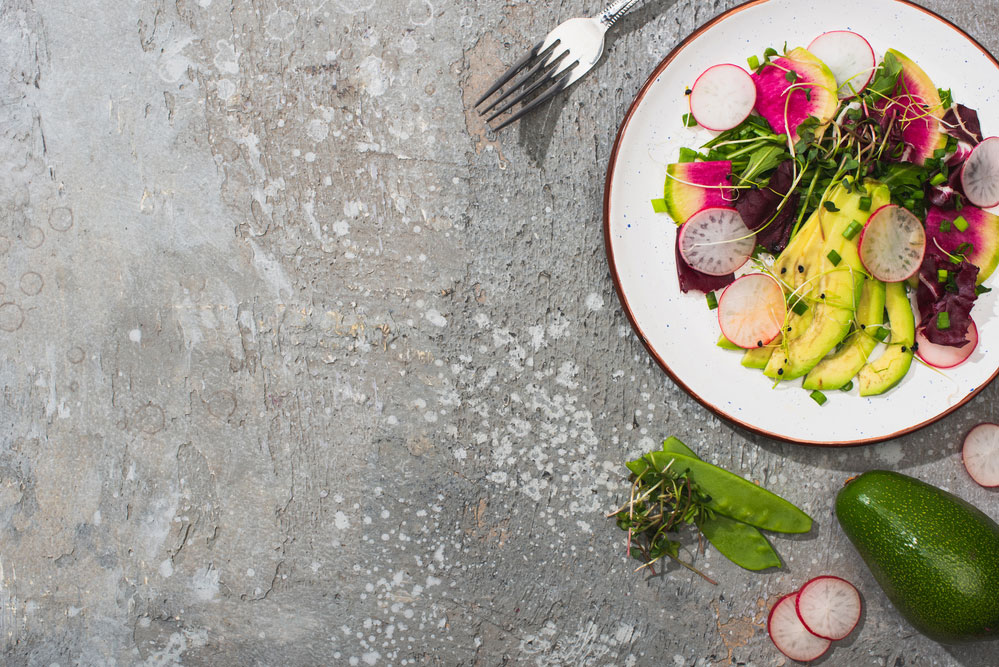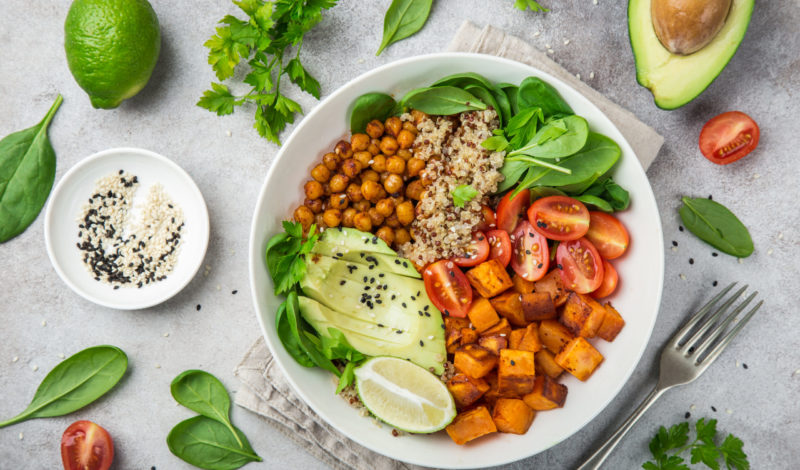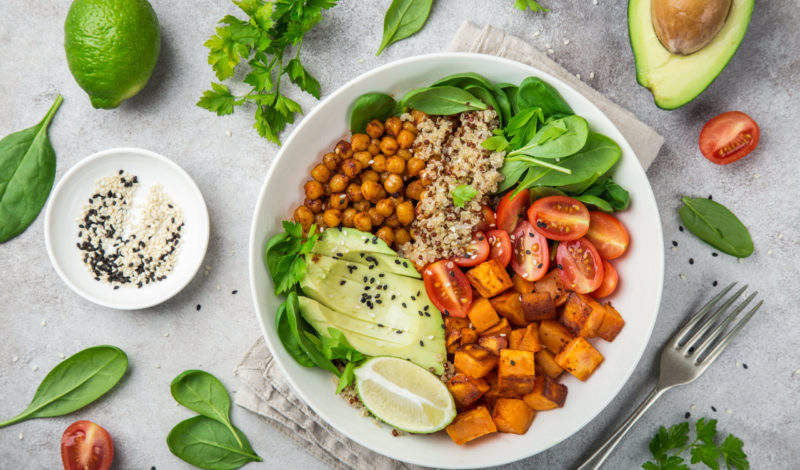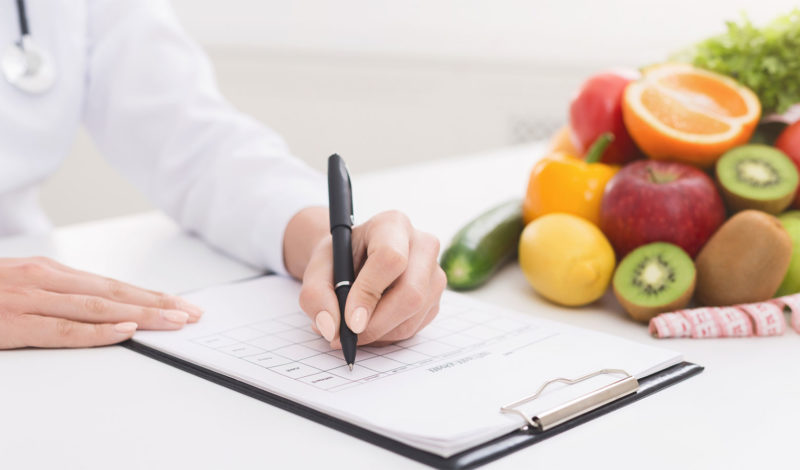Nutrient deficiencies caused by a vegan diet. Vegan nutrition: What deficiencies do vegans have to fear? The vegan diet is [...]

Vegan Food: Benefits and Potential Risks
Some people eat vegan food for moral reasons – i.e. because of the animals or for reasons of environmental protection. For others it is part of a hip lifestyle or they hope to lose weight as a result. But what about health? The limitation to vegan food leads to malnutrition, some say. Vegans are slim, fit and live longer, some say. But what is the truth and what is the myth about vegan benefits? We have taken a close look at the health benefits. We don\’t ignore the risks either, but show solutions for avoiding them.
Going vegan: advantages and disadvantages
At the latest since McDonalds offers burgers with vegetable hamburger substitutes, the discussion about vegan nutrition and its pros and cons has arrived in the middle of society. Everyone knows that vegans do without animal products. But only a few know that this means more than just not eating meat and milk. Bee honey and gummy bears with a gelatine content are not vegan either. But not everyone sticks so strictly to it. And in order to be clear: there is no single vegan diet! And not each vegane nourishing way is healthy: Who eats almost only veggie burger, eats in the end also only fast food. And that is not health-promoting at all. As for each other diet also applies here: The dose makes the poison. A healthy vegan diet is only healthy if it is varied.
Living Vegan Can Have Benefits For Health And Well-being
Many studies – for example those conducted by the World Health Organization (WHO) – show that a vegan diet is associated with many health benefits. The absence of fatty meat alone almost always has a positive health effect. Since the diet of vegans is based on plants, vitamin-rich vegetables, fresh salads, and nuts containing high-quality fats and proteins, the vegan diet provides many different vitamins and nutrients. Moreover, vegan food does not automatically lead to malnutrition because vegetables are often rich in nutrients. Additionally, the vegan diet contains many dietary fibres and micronutrients such as secondary plant substances and antioxidants as well as vitamins and minerals such as magnesium, potassium, and folic acid.
Proteins are the basic components of our body. This especially applies to essential amino acids. Meat and dairy products are the number one source of such essential amino acids. Proteins are also necessary for muscle building and maintenance. Athletes, in particular, may fear that a vegan diet represents a disadvantage in this respect. However, you can also build muscle with vegetable proteins as long as they contain all essential amino acids. This is the case with legumes, nuts, whole grains, soy products, and also some vegetables. These foods also offer a key health benefit: Plant protein sources usually contain less fat and cholesterol than animal sources. The situation is similar with fats. Vegetable products contain significantly more unsaturated fatty acids. These so-called good fats lower cholesterol levels. However, hydrogenated vegetable fats, such as those found in margarine, are not considered good fats.
One key question is whether if someone who is living a vegan lifestyle has an advantage or disadvantage in losing weight? Several studies have already investigated this question. Statistics on the body mass index of vegans suggest that vegans are often thinner. Additionally, vegan diets have proved to be more nutritionally efficient than mixed diets. This is due to the fact that vegan foods tend to contain more fibre and less fat. However, this does not apply to crisps, chips, and soft drinks. Vegetable snacks such as crisps and chips are some of the unhealthiest fatteners of all.
A diet that is vegan can offer health benefits. It usually reduces the risk of common diseases. Because those who follow a vegan diet build up fewer fat deposits, absorb a wider range of nutrients, and do not eat meat containing high amounts of cholesterol, they are less susceptible to cardiovascular diseases and Type 2 Diabetes. The Heidelberg vegetarian study conducted by the German Cancer Research Centre has also shown that the avoidance of red, processed meat can significantly reduce the risk of cancer. What these studies do not show, however, is the influence on one’s lifestyle. For instance, it has been demonstrated that most vegans also drink less alcohol, smoke less often, and exercise more than average.
Vegan Lifestyle: Possible Disadvantages of the Diet
Sick vegans are stuck in a dilemma since many drugs are not vegan. Some pressed tablets have cow’s milk lactose and capsule casings that often contain gelatine. And what about vaccines? These can often only be produced with the help of animal proteins and cells. As far as probiotics are concerned, there may be concerns since these can be a source of probiotics. However, if you give up probiotic yoghurts, you can also improve your microbial profile in other ways. With the intestinal test INTEST.pro from BIOMES, you can know the current state of your intestinal flora and you also get tips for vegan dietary supplements.
Is it possible to meet the nutritional needs with a vegan diet? Here are some pro and con arguments. Although vegetable food is rich in nutrients, some micronutrients only exist in small amounts or are more difficult to process in vegetable form. This applies to iron. For this reason, the German Society for Nutrition (DGE) does not recommend a vegan diet for pregnant women, nursing mothers, infants, children, and adolescents.
You can solve diet related problems by using BIOMES dietary supplements to prevent nutrient deficiencies and also by having your blood tested regularly. Pay special attention to your supply of vitamin B12. Unfortunately, vitamin B12 only appears in a high quantity in animal products. However, vegans can prevent deficiencies with special toothpaste and other vitamin B12 products.
Quite a few vegans miss crunchy sausages and juicy steaks. The food industry has recognised this and has developed a wide range of meat substitutes. To ensure that consistency, taste, and colour come close to the real thing. However, these products contain all kinds of colourings and preservatives, flavours, and a lot of salt and fat. These artificial products are therefore anything but healthy. Alternatively, you can make Seitan sausages yourself with healthier ingredients.
Calcium-enriched soy milk and tofu steak are quite expensive. In addition to the cost, vegan food has another disadvantage: You need time and some organization to make sure you have a balanced diet and to make a shopping list. Additionally, vegans usually have to cook for themselves on a regular basis. When switching to a vegan diet,it is important to make sure you cover your energy needs. Only then will no cravings arise for hot dogs and chips.



